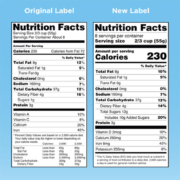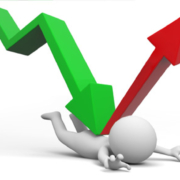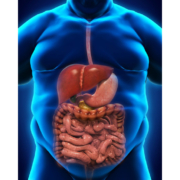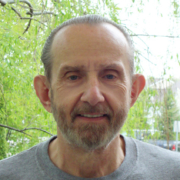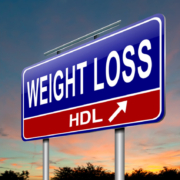Dr. Chet’s Health Memos
 If it’s in the health news today, I’ll be writing about it as soon as I read the research, both old and new. With my email Health Memos, you’ll know more about making lifestyle choices that will help you get and keep good health. These free, concise updates on health are emailed to subscribers twice a week. Subscribe today and get a free MP3, in English or Spanish, of Dr. Chet’s Top Ten Tips—Small Changes for a Healthier Life.
If it’s in the health news today, I’ll be writing about it as soon as I read the research, both old and new. With my email Health Memos, you’ll know more about making lifestyle choices that will help you get and keep good health. These free, concise updates on health are emailed to subscribers twice a week. Subscribe today and get a free MP3, in English or Spanish, of Dr. Chet’s Top Ten Tips—Small Changes for a Healthier Life.
Calcium vs. Magnesium
The 100th Indianapolis 500 was run on Sunday. A relatively unknown rookie, Alexander Rossi, won the race. Based on sports news reports, there were more lead changes and more position changes than in many Indy 500s. With 33 cars and drivers, changing track conditions, accidents, bumps, spins, and pit crews, the number of variables that contributed to the win by one driver and the loss by all the rest are too numerous to even try to attempt to calculate. Anyone who says they can do it is delusional.
What does this have to do with calcium and magnesium? There are . . .
We're sorry, but this content is available to Members and Insiders only.
If you're already a DrChet.com Member or Insider, click on the Membership Login link on the top menu. Members may upgrade to Insider by going to the Store and clicking Membership; your membership fee will be prorated automatically.
Improvements in the Nutrition Facts Labels
The new nutrition facts labels are out and as promised, I’m going to tell you what I think is important about them. Let’s get right to it.
- The listing of calories per serving is large enough that you can actually read it without searching for it. This is the biggest positive change; I had problems finding it at times and now, it’s the biggest type on the label.
- The serving size is clearly identifiable. This should eliminate the misdirection food manufacturers used to use to suggest that a half . . .
We're sorry, but this content is available to Members and Insiders only.
If you're already a DrChet.com Member or Insider, click on the Membership Login link on the top menu. Members may upgrade to Insider by going to the Store and clicking Membership; your membership fee will be prorated automatically.
The New Nutrition Labels
Over 20 years in the making, examined and discussed for over two years: the new Nutrition Facts labels are finally here. I’m glad. I’ve seen people of all ages standing in grocery stores puzzling over the labels and trying to figure out whether an item is one they should purchase or not.
Why did it take so long? The most important reason is that nutrition research takes time. Together with that, they’re trying to determine what is important for an entire population. You may be gluten intolerant or allergic to eggs—that’s important to you. But . . .
We're sorry, but this content is available to Members and Insiders only.
If you're already a DrChet.com Member or Insider, click on the Membership Login link on the top menu. Members may upgrade to Insider by going to the Store and clicking Membership; your membership fee will be prorated automatically.
Lessons from “The Biggest Loser”
The recent study on weight gain by former participants in “The Biggest Loser” reality television show blamed decreases in resting metabolic rate (RMR): the decrease in RMR became worse over time and contributed to most of the participants regaining most of the weight. In other words, they ruined their resting metabolism.
No, they didn’t. In my opinion, there are errors in the measurements for RMR and total energy expenditure (TEE). The errors may be in the equipment, but more than likely, in the assumptions that were made in the calculations.
Here’s where I think researchers went wrong: there . . .
We're sorry, but this content is available to Members and Insiders only.
If you're already a DrChet.com Member or Insider, click on the Membership Login link on the top menu. Members may upgrade to Insider by going to the Store and clicking Membership; your membership fee will be prorated automatically.
Rate of Change
I spent hours looking at the data in “The Biggest Loser” study. I did numerous calculations trying to figure out where the changes in caloric use occurred that could explain the dip in resting metabolic rate that made the headlines. There are several possible explanations.
Today I’ll give you the most probable reason: the subjects lost weight too fast. The average was 4.25 pounds per week and for some, it was double that. While that can win contests, it doesn’t allow the body to adjust to the tremendous changes that should be occurring.
Think about it. There . . .
We're sorry, but this content is available to Members and Insiders only.
If you're already a DrChet.com Member or Insider, click on the Membership Login link on the top menu. Members may upgrade to Insider by going to the Store and clicking Membership; your membership fee will be prorated automatically.
Does Weight Loss Ruin Metabolism?
The health headlines two weeks ago were focused on what we can call “The Biggest Loser Study.” Researchers published the results of a six-year follow-up of contestants in Season 8 of the reality show “The Biggest Loser.” It turns out that most contestants gained back a significant amount of weight. Why? Based on the research, decreased resting metabolism was identified as the most likely suspect. Headlines shouted that weight loss caused metabolic rates to fall more than expected and therefore made it hard, if not impossible, to maintain weight loss.
I believe that all research has merit, even . . .
We're sorry, but this content is available to Members and Insiders only.
If you're already a DrChet.com Member or Insider, click on the Membership Login link on the top menu. Members may upgrade to Insider by going to the Store and clicking Membership; your membership fee will be prorated automatically.
The Bottom Line on SIT
Let’s take a closer look at the study on Sprint Interval Training (1). Researchers recruited 30 sedentary and overweight men, average age 27. They randomly assigned the subjects to one of three groups: a control group who just kept on with their sedentary lifestyle; a group who performed moderate-intensity exercise for 50 minutes three times per week; and the sprint interval group who did three 20-second all-out sprints interspersed with warm-up, recovery, and cool down for a total of 10 minutes, also three days per week. All exercise was performed on exercise bikes and . . .
We're sorry, but this content is available to Members and Insiders only.
If you're already a DrChet.com Member or Insider, click on the Membership Login link on the top menu. Members may upgrade to Insider by going to the Store and clicking Membership; your membership fee will be prorated automatically.
SIT to Get Fit?
The researchers from Canada are at it again. The same group that brought you H.I.I.T now tries to go one step further with SIT. Too many acronyms? HIIT stand for high-intensity interval training; SIT stands for sprint interval training. What’s the difference?
HIIT uses intervals that last from one minute to four minutes in duration with an equivalent amount of rest between intervals; the intensity is adjusted to be able to last the interval time. In prior studies, this research group found that four 1-minute intervals with three minutes rest had positive effects on . . .
We're sorry, but this content is available to Members and Insiders only.
If you're already a DrChet.com Member or Insider, click on the Membership Login link on the top menu. Members may upgrade to Insider by going to the Store and clicking Membership; your membership fee will be prorated automatically.
I’m Alive V2.47
If you’re a long-time reader, this message may be familiar. Whenever I have a message scheduled for May 10th, I always use an updated version of the same message: 47 years ago today, my dad died at the age of 41. From the time I turned 41, every day I wake up on May 10th, I believe I have at least another year to live. It makes absolutely no sense, but it’s what I feel.
I didn’t know my dad well; my parents were divorced when I was very young. He could have seen me any . . .
We're sorry, but this content is available to Members and Insiders only.
If you're already a DrChet.com Member or Insider, click on the Membership Login link on the top menu. Members may upgrade to Insider by going to the Store and clicking Membership; your membership fee will be prorated automatically.
Raising HDL: Weight Loss
Before I finish up this week’s look at HDL cholesterol, I want to wish every mother a Happy Mother’s Day. I hope it’s a great day with your children.
The number one way to increase HDL cholesterol is to lose weight. Losing fat helps increase HDL levels while simultaneously lowering LDL cholesterol. We still don’t know precisely why, but there’s really nothing debatable about it.
I’ll give you my theory of why weight loss helps raise HDL cholesterol. In order to lose weight, you have to eat less and/or move more; more than . . .
We're sorry, but this content is available to Members and Insiders only.
If you're already a DrChet.com Member or Insider, click on the Membership Login link on the top menu. Members may upgrade to Insider by going to the Store and clicking Membership; your membership fee will be prorated automatically.


